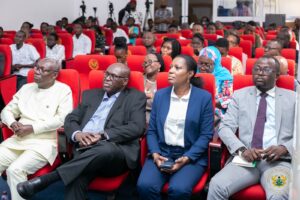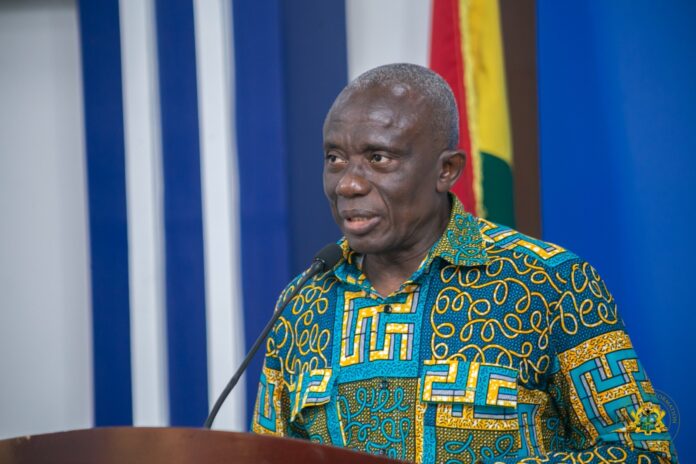The Chief Executive Officer of the Community Water and Sanitation Agency (CWSA), Ing. Worlanyo Kwadjo Siabe, has bemoaned the effects of the Akosombo Dam spillage on their work.
According to him: “The recent flooding we experienced have affected three of our water installations at Yeji (Bono East), Osudoku (Greater Accra), and Adidome in the Volta Region.”
Ing. Worlanyo Kwadjo Siabe made this known at the Ministry of Information press briefing under the theme, “Sustaining Rural and Small Towns Water Services through Policy Reforms” yesterday in Accra.
The Community Water and Sanitation Agency (CWSA) was established by an Act of Parliament in 1998, Act 564.

The mandate of the CWSA, per Act 564, is to “Facilitate the provision of safe water to rural communities and small towns, and promote water related sanitation and hygiene practice.”
This tragedy, he stated, brought some anxieties to those communities, and “we are doing what it takes to alleviate the pain, but we have learnt to incorporate protection of our infrastructure for new designs.”
Access to safe water
On safe water, he noted that, as at 2022, water infrastructure available to rural communities and small towns, which have been provided by state institutions (CWSA and MMDAs), Non-Governmental Organisations (NGOs) and religious bodies were Boreholes fitted with hand pumps 31,388, Small Towns Pipe water systems 616 and Limited mechanized water systems 1,308.
Subsequently, he added that water coverage for rural communities and small towns based on access to potable water coverage as estimated by Ghana Statistical Service is 74.4% (GSS: 2021, Population & Housing Census).
“Water coverage as estimated by CWSA is 62.63%, as at 2022. CWSA WASH activities cover 17,441 out of 29,279 communities in the 16 regions,” Ing Siabe stated.
Challenges of Community Management
Speaking on some of the challenges they encounter in the community management, he indicated that frequent breakdown and long downtime (more than a month) of water systems with a high non-revenue accounted for about 50% in 2017.
Additionally, there is a huge accumulation of electricity bills on community managed water systems of over GH¢40 million.
“Water quality challenges
At least 30% of groundwater has high levels of iron, manganese, fluorides, arsenic and hardness). Surface water sources have also deteriorated as a result of unapproved human activity in most river basins (i.e. mining),” Ing siabe emphasised.
He continued that inadequate supervision by District Assemblies and lack of technical and managerial capacity at community level to manage water systems and new technologies was a great worry to him.
Misapplication of funds by Water and Sanitation Management Teams (WSMTs) at community level, he said, is also a challenge to the Agency.
“Inadequate financing for post construction activities to guarantee regular follow-ups, repairs and maintenance. Changes in the financing landscape of Ghana, resulting in dwindling resources to the Sub-sector,” he stated.
Despite these challenges, Ing Siabe has assured that his outfit was committed to achieving its new mandate, and would continue to partner stakeholders to deliver the planned medium-term programmes and projects.










